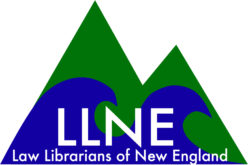By Anne McDonald
This was a very interesting meeting that tied together the above themes and shed light on many common assumptions. Here are some highlights.
Salem, Massachusetts is indelibly associated with witchcraft, but it was not the first place to hold witchcraft trials in the colonies or even in Massachusetts. Witchcraft trials started in Europe and were then carried over to the colonies. The earliest witchcraft accusations in the English colonies took place in Virginia: the trial of midwife Joan Wright. Her neighbors testified that she caused the death of a newborn. She was acquitted despite admitting that she had some knowledge of witchcraft. Mark Podiva of West Virginia University College of Law gave the keynote speech, saying we need to focus on implicit and explicit bias in sources, both historical and current.
Anne Rajotte of the UConn Law Library discussed Connecticut witch trials, which were lesser known than the Salem witch trials because the trials were spread out over many years and information was scattered. Salem’s witch trials, while not the earliest, are the best known, perhaps because of the high number of deaths in a short period of time. Between June and September 1692, nineteen men and women were hanged for witchcraft in Salem.
Amazingly, there was a time when the courts allowed “spectral evidence”; if a witness said the accused came to him in a dream, that could be admissible as proof of the devil’s work. The witchcraft laws all had biblical language. Rhode Island had a statute forbidding witchcraft from 1647 until it was abolished in 1767. There was never a prosecution for witchcraft in Rhode Island.
Witch trials serve as an early example of fake news, the first Salem trial was started by bored teenagers spreading lies. They listened to a servant’s stories, after being told they were not supposed to, then said she cast spells on them. There are still witch hunts going on in parts of the world, most frequently in developing countries. When people get sick, witchcraft is suspected.
Gary Smith of the Berkshire Law Library, who is both a librarian and art historian, showed and discussed a painting by a 19th century artist named T.H. Matteson of the “Witchcraft Trial of George Jacobs.” It was painted in 1855. He showed how art can help us remember things.
John Barden and Mike Hughes gave interesting, edgy, humorous presentations that kept us awake following lunch.
The last speaker, Ron Wheeler, put us in a deep, reflective mood when he read from his article about his lifelong journey towards empathy, which sums up the theme and main takeaway of the entire program. As Tanya Johnson notes in the SNELLA newsletter, misunderstanding and lack of empathy can lead to horrific consequences.
I would like to thank Ellen Phillips of LLNE and Jordan Jefferson of SNELLA for their joint efforts in putting together this program. I would like to thank LLNE for arranging for the services of professional CART reporters Stephanie Farrell and Kathleen Dwyer, who worked hard all day to make the program accessible to me.
Here is a link to SNELLA’s January 2018 newsletter with two items related to the Salem meeting: Anne Rajotte’s article: Witch Trials in Connecticut on pages 3-4, followed by Tanya Johnson’s report titled “10 Things I learned at the LLNE/SNELLA meeting in Salem.”



